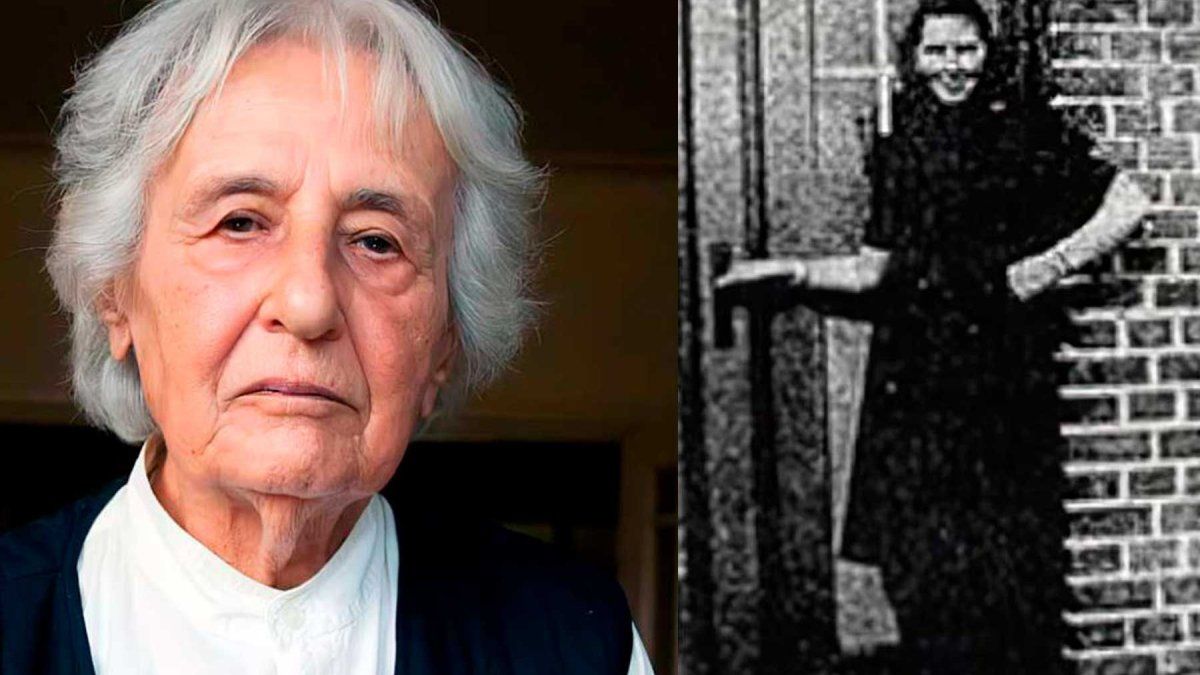The German Federal Court on Tuesday confirmed the Irmgard Furchner sentenced to 99 years for complicity in murder. Furchner worked as Typist at the Stutthof Nazi concentration camp during the last two years of World War II.
In 2022, she was sentenced to two years in prison on hold for its involvement in the death of 10,505 people while working at the Stutthof concentration camp from June 1943 to April 1945. Although his defense argued that his role was limited to administrative tasks, the Federal Court rejected this justification, pointing out that Furchner knew what was happening and supported those responsible.
Lawyer Christoph Rückel, who has been representing Holocaust survivors for years, says that “she was in charge of all correspondence for the camp commandant.”
Irmgard Furchner 3.jpg
Irmgard Fürchner at the trial.
Courtesy of KOHA
“Also He typed the execution and deportation orders and put his initials“, he completed to the regional public broadcaster NDR.
Stutthof, located near Gdansk, was the site of the deaths of approximately 65,000 people, including prisoners of war and Jews, many of whom were sent to Auschwitz to be exterminated.
Unsuccessful escape plan
At the beginning of the trial In 2021, Furchner tried to evade the process by escaping from his nursing homebut was arrested and imprisoned preventively, becoming one of the oldest female fugitives in history.
The woman had left her home and taken a taxi 20 minutes after the scheduled time of her trial in the northern German town of Itzehoe. The accused was quickly found by police officers.
After a lengthy procedure, the court ruled that Furchner was fit to appear in court despite her advanced age. But court hearings should be limited to a few hours a day.
Germany has never tried such elderly ex-Nazis before.
Seventy-nine years after the end of the Second World War, German justice continues to search for former Nazi criminals who are still alive.
In recent years, several trials have had to be abandoned due to the death of suspects or their physical inability to appear in court.
But although Germany has sentenced four former guards or employees of the Nazi camps of Sobibor, Auschwitz and Stutthof in the past 13 years, has tried very few women involved in the Nazi machinery, according to historians.
The courts have examined the cases of at least three other female employees of Nazi camps, in particular another secretary who worked at Stutthof, but she died last year before the trial was completed.
Juvenile punishment
This case is part of a Series of trials against nonagenarians for Holocaust crimesin an effort to achieve justice for the victims. At the end of the trial, Furchner expressed regret for his role in Stutthof. Recordings of the trial will be archived in the German Federal Archives.
The conviction was based on the fact that at the time of the crimes, Furchner was under 21 years old, thus receiving a “juvenile sentence.”
Some 4,000 women worked as guards in concentration camps.according to historians, but few were tried after the war.
Source: Ambito




